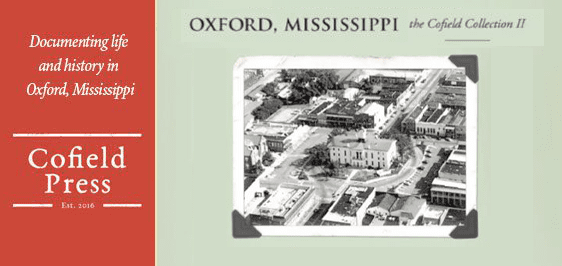
A Visit with Walker Jones: NIL and The Grove Collective’s Journey to Streamline the Process

OXFORD, Miss. — Name Image Likeness, or “NIL” as it’s often referred to, has turned the world of college sports on its proverbial ear. Most fans know and understand the concept of NIL, but to refresh one’s memory let us look back to how it all began, and that was with an eventual Supreme Court case that made everyone in the world of college sports take notice.
In the spring of 2014, an antitrust lawsuit was filed on behalf of Shawne Alston, a former West Virginia running back, and Justine Hartman, a former University of California center, as representatives for a group of former men’s and women’s college football and basketball players.
The lawsuit, filed in U.S. District Court, accused the NCAA of violating antitrust laws through its eligibility rules regarding compensation for student-athletes. In the past, the NCAA had skirted the issue by falling back on the amateurism status of athletes, but this time to no avail.
The case eventually reached the Supreme Court, which in a unanimous decision, upheld the lower court’s ruling that NCAA restrictions on “education-related benefits” for college athletes violated antitrust law.
In a concurring opinion, Justice Brett Kavanaugh stated, “Nowhere else in America can businesses get away with agreeing not to pay their workers a fair market rate on the theory that their product is defined by not paying their workers a fair market rate, and under ordinary principles of antitrust law, it is not evident why college sports should be any different. The NCAA is not above the law.”
Although it did not directly address pay-to-play, Kavanaugh’s opinion may have been seen by the NCAA and its member conferences as a sign of things to come. For after the ruling, the NCAA became welcoming of state-by-state legislation concerning the rules governing compensation for athletes.
An Interim NIL Policy
On July 1, 2021, the NCAA released an interim policy that allowed college athletes to benefit from their Name, Image, Likeness (NIL). The Interim Policy stated athletes could engage in NIL activities consistent with the law of the state where their school is located.
If a state has no NIL legislation, college athletes in that state can still engage in NIL activities without harming their eligibility. The Interim Policy outlined restrictions, such as the barring of using NIL as an improper recruiting inducement and the prohibition of pay-to-play. Still, it did not provide a consistent set of NIL rules.
The NCAA left the process of defining the limitations on NIL up to individual states, athletic conferences, and colleges.
Walker Jones and The Grove Collective
All of this brings us to how we got where we are today with Name Image Likeness and why we need a collective to help oversee opportunities for student-athletes to make NIL deals with outside businesses or individuals.
Who would be an ideal choice to run such a collective body? Ole Miss graduate Walker Jones the newly appointed executive director of The Grove Collective, became the resounding answer to the question.
Jones, a very successful businessman in his own right, decided to accept the position with the collective for several reasons, which he explained to us in a recent interview.
“Number one, my love for the school,” he began.
“Any time I have the opportunity to help the school out that gave me so much over the years, where I met my wife, where I played football, where I got my education, I will. I have a deep passion for the school. Number two, I love challenges, and the NIL world right now is challenging in the sense that it’s brand new, and there’s not a ton of guidance right now. So, there’s that short-term challenge but that long-term opportunity. So, I love the challenge of figuring out NIL and the challenge of trying to figure out a best-in-class model for our university.”
Walker Jones, Executive Director The Grove Collective
Jones could have maintained the status quo but chose to enter the world of NIL at a time that coincided with his availability to start a new path.
“Timing is so important in life, and I had some bandwidth I could commit to this,” he explained. “In my other personal endeavors, I have some really cool partners who have given me the ability to take this on. So the timing was another big part of it. If it were a year or even six months ago, I probably would not have been able to do it,” he added.
Challenges abound in the world of NIL for sure. Individuals and groups were trying to do NIL on their own as a side job. For example, William Liston, a lawyer from Jackson, MS, started The Grove Collective and ran a full-time law firm.
Liston had dedicated as much time as possible to running the collective. Eventually, it was evident that there needed to be consolidation of collectives because being united would accomplish more and serve the student-athletes and university in a more impactful way. So, The Grove Collective was revamped with Jones taking on the new role of executive director.
Collectives joining forces
“We wanted to have a consistent one-stop shop for NIL for all our fans and our student-athletes who want to participate in NIL,” Jones tells us.
“We had various groups trying to do the same thing, all trying to accomplish the same things to help our university and to help our athletes. So, the first order of business was to say, ‘Hey, look. Let’s get everyone on the same page.’ We’ve got to be efficient at Ole Miss. Our margin of error is smaller than for other schools. We really want to get everybody on the same page and consolidate into one group and then put some dedicated full-time resources into it where this could be sustainable. We’ve hired three people full-time and have an office in Oxford full-time. So it was a 60-90-100 day plan of consolidation, committed resources, and trying to build our brand, so people knew: what we were, what The Grove Collective is, what were are not, and how they could participate.”
Walker Jones
Some collective organizations have merged with The Grove Collective, while others remain autonomous. The Ole Miss Spirit Collective and the Oxford Chamber of Commerce NIL Platform merged with The Grove Collective.
The Oxford NIL Club is a national group that works with players and has not technically joined with The Grove Collective because the Oxford NIL Club is run by a third party that is a national company. However, the Oxford NIL Club and The Grove Collective share information to figure out ways to create efficiency and not overcomplicate matters for student-athletes.
Oxford Next Level Exchange
In order to make money from NIL, student-athletes need opportunities. Finding opportunities for student-athletes is a service that not only The Grove Collective provides but the university as well. The Oxford Next Level Exchange is a university-run service that helps student-athletes source local opportunities to partner with businesses.
The Grove Collective is a registered exchange member and aids in sourcing leads and identifying new businesses and opportunities for student-athletes.
“The Oxford Chamber of Commerce supports roughly 700 businesses and groups. Those include for-profit and non-profit entities and consist of local, regional, and national companies that do business in the Oxford community,” Jones explains.
“The exchange focuses on connecting athletes with opportunities that coincide with their passions from a charitable or a business standpoint. The Grove Collective works separately but in tandem with the exchange to help give student-athletes exposure to opportunities and provide counseling on what deals could look like and what obligations would look like. There are athletes that want to be involved in the community. They want to find charitable endeavors.”
Walker Jones
The Grove Collective considers protecting student-athletes, creating opportunities for them, and preparing them for what NIL deals entail a vital part of its mission. When describing the relationship, Jones told us, “It’s similar to an agency where we try to create opportunities for them (student-athletes) that don’t exist, to enhance the ones they have, and then ultimately protect the well-being of student-athletes because we all know that sometimes there are some bad actors out there,” he relays.
“There are a lot of unknowns. I know when I was 19 and 20 years old, I made some mistakes. So, our job is to give these athletes resources and tools to create and enhance, but also protect (them). I think that’s really the other thing that probably attracted me to it (collective) was the impact we could have on the student-athlete and the ability to protect their well-being from the standpoint of taxes, money management, obligation management, their time, their schedule, all those things that come into play here. We are kind of serving as a little bit of an agency advising service that gives them the tools to take what they had and develop it even further and do it within the confines of our state statutes and the limited NCAA guidelines.”
Walker Jones on how the Grove Collective will help student-athletes
The more NIL develops, the more you will see agents and groups flock to the NIL space. A small number of student-athletes are represented by agents who advise athletes and help them with navigating the process of NIL, negotiating deals, valuation, obligation management, and all that comes with contracts.
The Grove Collective deals with agents, but right now, it is more of an exception than a rule. Jones says, “Of the 60 plus athletes we have right now as ambassadors, maybe five to ten percent of them have some sort of agent.” Many times, parents are involved and serve as the de facto agent.
Student athletes from other countries
Student-athletes from foreign countries bring an interesting problem to the NIL space. These athletes come to America on student visas, not work visas. It is a problem people did not consider when NIL first began. You must be very careful when dealing with the issue for fear of jeopardizing an athlete’s visa.
The Grove Collective is assisting the impacted athletes in figuring out the process. If one looks at programs like tennis, golf, or basketball, one sees a lot of international athletes. The Grove Collective will assist in finding ways to accommodate international students so they can benefit from NIL in a way that does not jeopardize their visas.
It is a question that may take time to answer, but The Grove Collective is actively working with the students and their home countries to find solutions. “It goes to the bigger question,” Jones explains, “of do the athletes turn into employees of the university, which again we don’t have the answer to that. You could argue that on both sides. That’s one of the examples of how the NIL world is going to continue to evolve.”
Ultimately, legislative regulation will most likely be the answer, but that question remains unanswered for now.
Mississippi state law advantageous
When compared to other universities, Jones says Ole Miss is catching up. As he explains, “I think we were probably a little behind. But again, a lot of people are. A lot of people were slow to react or just didn’t know how to get this going. There’s very limited guidance right now, especially a year ago when all of this became state law,” he noted.
“(Now) I would say we are ahead of the curve. I think what we’ve done over the last two months has put us in a very advantageous position with our competitors. Much of what you can do in NIL is based on your state statutes and state law. We’re blessed in Mississippi to have a very advantageous state statute that gives us the ability to have a lot of creativity and a lot of coordination with the university. Other states don’t have any laws at all, and they have to defer directly back to the NCAA. Our state law is a huge bonus for us….If you look at it on a national landscape, I think we are ahead of the curve. I think we are going to try and be really progressive, and if we do this right, I think a year from now, we will be sitting in a very impactful position with our student-athletes and our university.”
Walker Jones
Spreading the money around
Both the university and the collective will look to donors for funding. Where donors choose to donate their money will impact both entities.
University leadership paused the capital campaign and postponed the stadium expansion to focus on NIL and see what the future holds.
However, Ole Miss fans can rest assured that university leaders and The Grove Collective are working together to ensure that Ole Miss progresses appropriately and as quickly as possible.
“I don’t have all the answers,” explains Jones, “and neither does (Athletic Director) Keith (Carter). I think the great news is Keith and I have known each other for twenty-plus years. We were both student-athletes together at Ole Miss. There’s a great level of coordination and communication between Keith and his staff and our staff at the collective to figure these things out. I think we’ve got some general ideas of how we want to work together, but a lot of it is undefined and undeveloped. At the core of it, we want to make sure we don’t confuse donors. We want to make sure we don’t cannibalize them as well where they are getting six phone calls about four different things to give to. So, we want to be really clear and clear any confusion out there and be very respectful of the ask when we are asking them to contribute, knowing they are going to have to do both.”
Best uses of resources
There are so many things to consider. How does the university keep fans happy and coming to games? How do the university and the collective use their resources to attract the best student-athletes?
Times have changed, and so must the thinking of those in charge. “When I was coming up and a student-athlete, it was all about facilities,” Jones tells us. “Now, that’s not really the case. Facilities play a part in these kids’ decisions, but not as much as it did say 10 or 15 years ago. NIL has given them another thing to look forward to and to analyze outside of just how nice the stadium is how nice the practice facility is how nice the locker room is,” he notes.
“I would argue they (facilities) are not as great of a factor as they were since the emergence of NIL. We’ve got to figure that out like everybody. Athletic directors like Keith are trying to figure it out in a timely manner and also be respectful to the donor base so they don’t get confused. What I would tell people is that whatever happens, we (collective) are going to support the university. These aren’t mutually exclusive. You can have a great NIL platform and still build great facilities. But we have to have a really clear plan for that, and that’s what we are developing right now with Keith and his staff.”
Walker Jones
NIL has changed college sports. There is no going back, only forward. Fortunately, Ole Miss has a talented group of leaders dedicated to finding ways for Ole Miss and its student-athletes to be prosperous and progressive in the world of NIL and beyond.
What Jones wants Ole Miss fans to know
We asked Jones what he would like for Ole Miss fans to know about this new world of NIL and collectives, and this is what he says:
“We (The Grove Collective) are going to be stewards of their money if they so choose to donate and become a member. We are going to do things in a very compliant and legal fashion. We are going to have close coordination with the university to make sure we are being as impactful as we can, and it’s going to be a simple one-stop shop for fans. At the end of the day, we want to have a clear and simple mission of creating, enhancing, and protecting these opportunities for student-athletes in conjunction with the university being good stewards and doing it one hundred percent compliant.
“To be honest, the way we succeed is to get as many of our fans to sign up as members as possible. We need several thousand members so that we have a recurring revenue model that can sustain this structure where it’s as impactful as we need it to be. I challenge all the Ole Miss fans to go to the website https://thegrovecollective.com/. There’s a membership level for everybody starting as low as $10 a month. Every little bit helps. I can assure you that if they give us their money, we will take great care of it and be very impactful with it.”
What the future holds regarding NIL may be unclear, but what is clear is the devotion, commitment, and determination Walker Jones exudes for finding ways to serve Ole Miss, its student-athletes, and fans.
He truly exhibits the heart of a Rebel and all that Ole Miss fans hold dear. The future may be filled with challenges, highs, and lows, but fans can rest assured that Jones will be there to provide the guidance and leadership that student-athletes need to be successful on the field of play and in life while leading Ole Miss to new heights in the world of NIL and college athletics.
Donna Sprabery is a former teacher, graduation coach, and academic coach for boys basketball. She graduated from the University of West Alabama with a major in business education and from Arkansas State University with a MA in Educational Leadership. A native of Meridian, MS, Donna enjoys traveling, gardening, writing, volunteer work, and cheering on the Rebels.


























